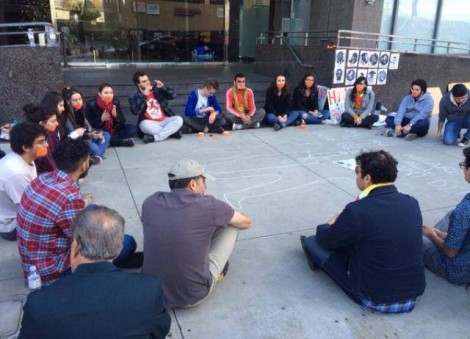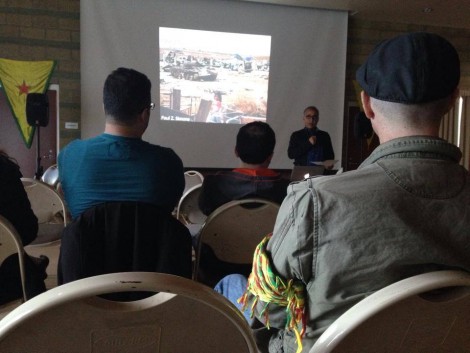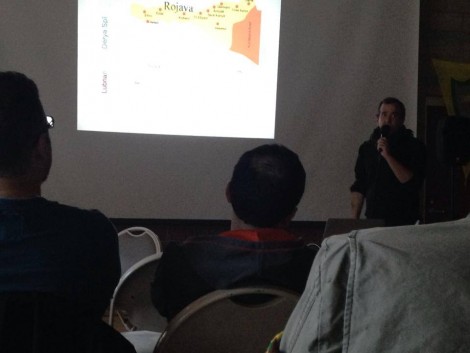
By Yara Kamaran Ismael:
News of the assassination of the prominent Kurdish lawyer, Tahir Elci, made it to the headlines. Although similar incidents happen occasionally in Kurdish areas in Turkey, this incident looked different, because Elci was openly calling for peace. He was shot dead after a press conference in Istanbul on November 18th. On that date, there was one last tweet in Turkish on his twitter account that said “Goodbye friends. Stay well.”
Many people protested this heinous crime. Many others condemned this crime on social media. Leyla Zana, a Kurdish-Turkish politician expressed her grief for her fellow worker on her twitter account in both Turkish and Kurdish, “We lost you early! You lived an honest and honorable life with your faith and dignity. May your place be as enlightened as your mind and soul were.”
As tensions escalated again in the predominantly Kurdish areas in south-eastern Turkey resulting in the murder and injuries of several civilians, Kurds and Armenians came together to condemn Tahir Elci’s murder and other attacks on minorities in Turkey in front of the Turkish Consulate in Los Angeles on Saturday, December 19th.

Activists tape their mouths during a sit in as a part of the protest in front of the Turkish consulate in LA
The next day, on Sunday, there was a seminar by journalist and author, Paul Z. Simons in Agoura Hills, Los Angeles, which covered journalism, adventure, and revolution in Rojava – Western Kurdistan (Syria). The American author and writer, best known as “El Errante” was fascinated by the revolutionary spirit of the Kurds, “HOPE… it’s a Kurdish disease”, he commented. Before starting the journey, he contacted the Lions of Rojava, a branch of YPG – People’s Protection Units — that is responsible for the foreigners who welcomed him on the borders and provided him with a car and a translator, Mohammed.
To get to Rojava, he went through Turkey, to Erbil, and then crossed the border to Syria through Faysh Khabur, allowed to only travel once to the Kurdish war torn area in northern Syria using a press card. Simons described his experience as “very emotional and adventurous” that allowed him to know more about the revolution in Rojava, the hospitality of the Kurds, the war against terrorism , and the political structure of the exclusive Kurdish rule. Democratic Confederalism which is a political system by Abdullah Öcalan first promoted by the PKK, is now practiced by the administration of Western Kurdistan. There is a Legislative Council in every town in which every party is represented, experts in every field as legislators, and consists of at least 40% women. When asked about what the Kurds need there the most, he answered, “The Turkish borders to be opened because they [the Kurds] can’t get in anything, not even medicine, experts, or construction tools…” Returning to the US, in Dublin he couldn’t tell the US Border Patrol officer about his trip to Syria. However, for him, “Fifty kilometers away from Daesh, I felt safer in Rojava than in the US…”

One of the emotional stories he told is about a 14 month old baby girl, whose grave is shown in the above picture. She was killed during the three-day long attack on Kobane by ISIL in June.

Luqman Barwari, organizer of the event, co-founder of the Kurdish-American Relief Fund Organization and of Niroj Kurdish Cuisine
Later on that night, there was a dinner/fundraiser for the vulnerable refugees who are affected by the war waged against ISIL in Niroj Kurdish Cuisine. There will also be two Kurdish New Year parties in the area.
Yara Kamaran Ismael is a Kurdish activist and a high school student based in California. https://yarakismael.wordpress.com/
.jpg)







[…] This article was also published here […]